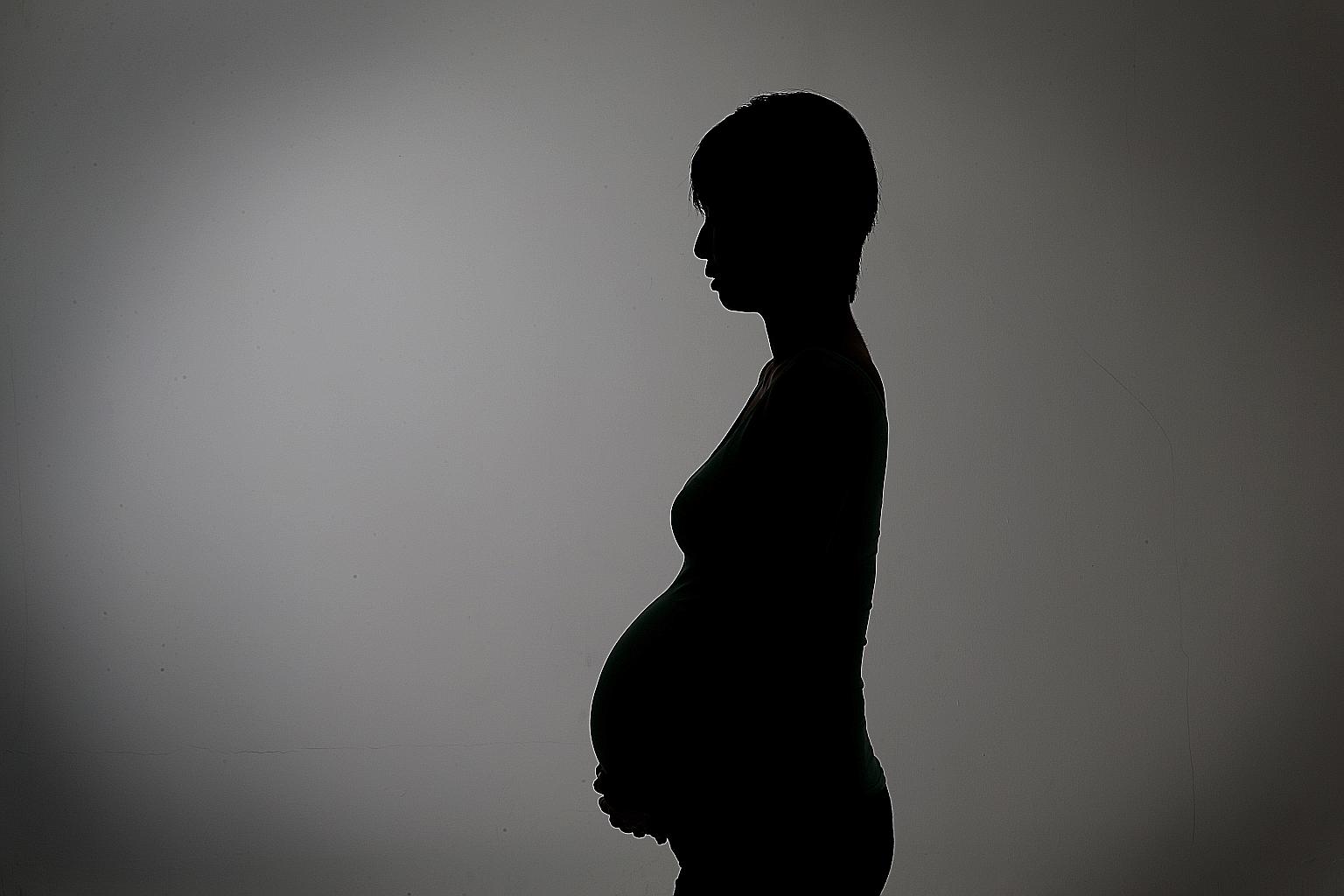More people asking for prenatal DNA testing
Sign up now: Get ST's newsletters delivered to your inbox

A number of firms have been offering prenatal DNA tests here for some years now. Their clients include women who are uncertain if the husband or a lover is the father of the unborn child.
ST PHOTO: NEO XIAOBIN
Pregnant women who are uncertain if the husband or a lover is the father of the unborn child are using prenatal paternity testing to help them decide on their next course of action.
A number of firms have been offering such prenatal DNA tests here for some years now.
Easy DNA Singapore, which was set up in 2012 and has offered such tests since 2013, said the number of people asking for tests has more than doubled every year. Director Sharifah Khairiyah Syed-Mohamad said: "I think the increase has to do with greater awareness of prenatal paternity testing. But it could also be because there may be more extra-marital affairs going on."
In the first four months of this year, it conducted 12 tests - the same number as the whole of last year. Each test costs $2,350 and involves drawing blood from the pregnant woman and extracting the baby's DNA from the blood. This is because fragments of fetal DNA can be separated from the woman's genetic material in her blood. This is then checked against DNA material from the man, obtained with a cotton swab applied to the inside of his cheeks.
Dr Kenneth Wong of Obgyn Centre, who also performs prenatal paternity tests, says most women who ask for the test are married professionals in their 30s and 40s who have had flings or affairs. They abort if the baby is not the husband's, he said. On average, he performs one to two prenatal tests a month. Each test costs $5,000 to $6,000.
Unlike Easy DNA's method, Dr Wong gets tissue samples for DNA testing from the foetus through procedures known as chorionic villus sampling, or through amniocentesis. This can be done from as early as the 10th week of pregnancy. But the woman has to bring her lover for his blood sample to be taken as well. If there is a match with the baby's tissue sample, then paternity has been established by exclusion, he said. This means that if the lover is not the father, then the child is the husband's - who is none the wiser about the wife's affair.
Dr Wong cited the case of a patient who had a fling with her tour guide when she went trekking. She later arranged for the guide to fly here for tests. It turned out he was not the father, so she continued with the pregnancy.
The Health Sciences Authority's (HSA) DNA Profiling Laboratory also processes prenatal paternity tests, but handles fewer than 10 such tests a year.
Demand for conventional paternity tests after the birth of a child is also growing, according to Easy DNA and another firm, Baby DNA.
Easy DNA carried out 93 paternity tests last year - a figure which has increased by about 30 per cent a year since it was set up in 2012.
Baby DNA declined to give figures, but said demand for paternity tests has been rising each year.
A basic paternity test costs around $500 at both firms.
The HSA, which started processing paternity tests in the mid-1990s, says that in the past decade, it had handled between 180 and 220 paternity tests a year .
Lawyers say that for husbands, establishing paternity means that those who file for divorce can argue against having to provide maintenance if the child is not theirs.
Lawyer Louis Lim had a client who not only found out that his wife was unfaithful, but also discovered, through paternity tests, that both his sons were not his. He was heartbroken, Mr Lim said, adding that the man filed for divorce.
Theresa Tan


